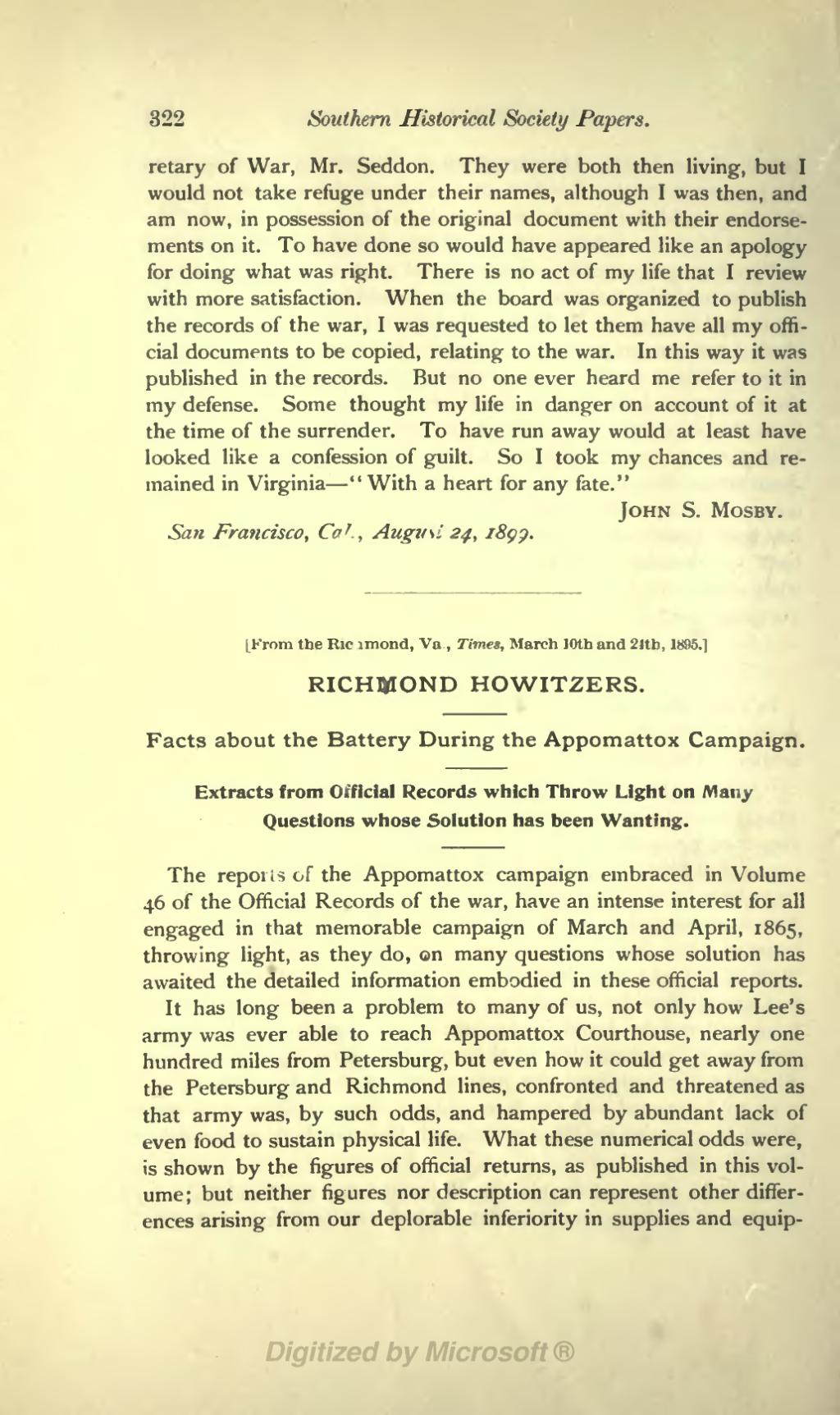322 Southern Historical Society Papers.
retary of War, Mr. Seddon. They were both then living, but I would not take refuge under their names, although I was then, and am now, in possession of the original document with their endorse- ments on it. To have done so would have appeared like an apology for doing what was right. There is no act of my life that I review with more satisfaction. When the board was organized to publish the records of the war, I was requested to let them have all my offi- cial documents to be copied, relating to the war. In this way it was published in the records. But no one ever heard me refer to it in my defense. Some thought my life in danger on account of it at the time of the surrender. To have run away would at least have looked like a confession of guilt. So I took my chances and re- mained in Virginia "With a heart for any fate."
JOHN S. MOSBY. San Francisco, Ca f ., Augu\i 24.,
[From the Ric imond, Va , Times, March 10th and 21th, 1895.]
RICHMOND HOWITZERS.
Facts about the Battery During the Appomattox Campaign.
Extracts from Official Records which Throw Light on Many Questions whose Solution has been Wanting.
The repoiis of the Appomattox campaign embraced in Volume 46 of the Official Records of the war, have an intense interest for all engaged in that memorable campaign of March and April, 1865, throwing light, as they do, on many questions whose solution has awaited the detailed information embodied in these official reports.
It has long been a problem to many of us, not only how Lee's army was ever able to reach Appomattox Courthouse, nearly one hundred miles from Petersburg, but even how it could get away from the Petersburg and Richmond lines, confronted and threatened as that army was, by such odds, and hampered by abundant lack of even food to sustain physical life. What these numerical odds were, is shown by the figures of official returns, as published in this vol- ume; but neither figures nor description can represent other differ- ences arising from our deplorable inferiority in supplies and equip-
